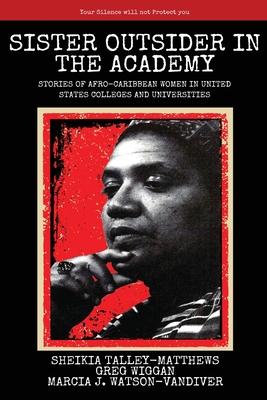Institutions of higher education in the United States enroll the largest number of foreign students in the world each year. As such, this book presents a phenomenological study that explores the perceptions and experiences of Afro-Caribbean international female graduate students attending Predominately White Institutions (PWIs) in the southeastern U.S. The experiences of Afro-Caribbean women have often been overlooked or homogenized in the literature as generalizable among foreign students or African Americans. Therefore, this book is guided by the following two research questions: 1. What are the academic experiences of Afro-Caribbean international female graduate students attending predominately White colleges and universities in the southeastern United States? And, 2. What unique factors have shaped Afro-Caribbean international female graduate students' experiences while attending graduate schools at predominately White colleges and universities in the southeastern United States? The data presented in this book are in-depth interviews with eight (8) Afro-Caribbean international female graduate students attending PWIs in the U.S. The findings indicate that Afro-Caribbean women navigate multiple academic and campus-based challenges associated with race, gender, and international status in schools. The book presents meditating processes, strategies, and recommendations for higher education institutions.

Sister Outsider in the Academy: Untold Stories of Afro-Caribbean Women in United States Colleges and Universities
Institutions of higher education in the United States enroll the largest number of foreign students in the world each year. As such, this book presents a phenomenological study that explores the perceptions and experiences of Afro-Caribbean international female graduate students attending Predominately White Institutions (PWIs) in the southeastern U.S. The experiences of Afro-Caribbean women have often been overlooked or homogenized in the literature as generalizable among foreign students or African Americans. Therefore, this book is guided by the following two research questions: 1. What are the academic experiences of Afro-Caribbean international female graduate students attending predominately White colleges and universities in the southeastern United States? And, 2. What unique factors have shaped Afro-Caribbean international female graduate students' experiences while attending graduate schools at predominately White colleges and universities in the southeastern United States? The data presented in this book are in-depth interviews with eight (8) Afro-Caribbean international female graduate students attending PWIs in the U.S. The findings indicate that Afro-Caribbean women navigate multiple academic and campus-based challenges associated with race, gender, and international status in schools. The book presents meditating processes, strategies, and recommendations for higher education institutions.